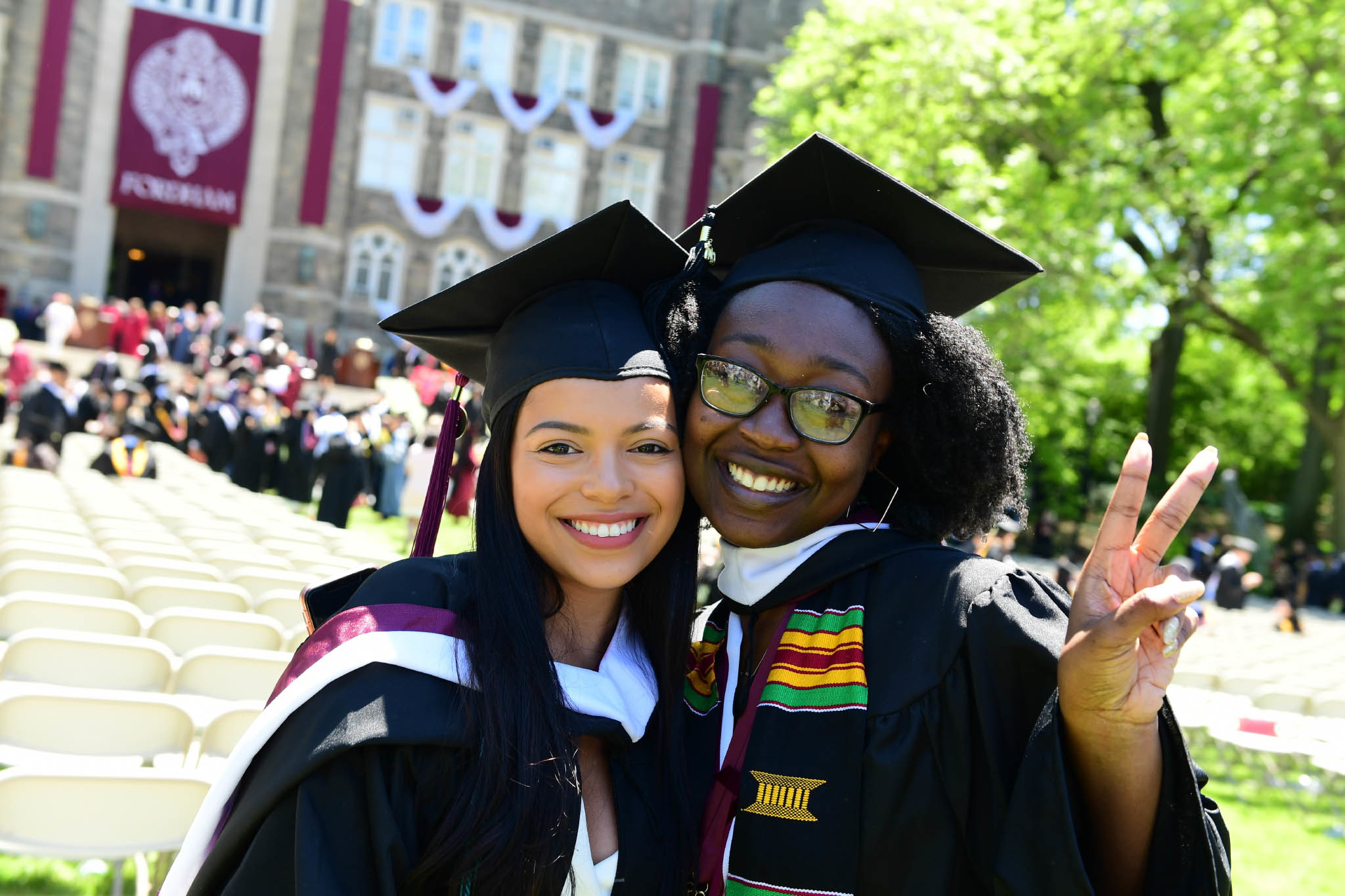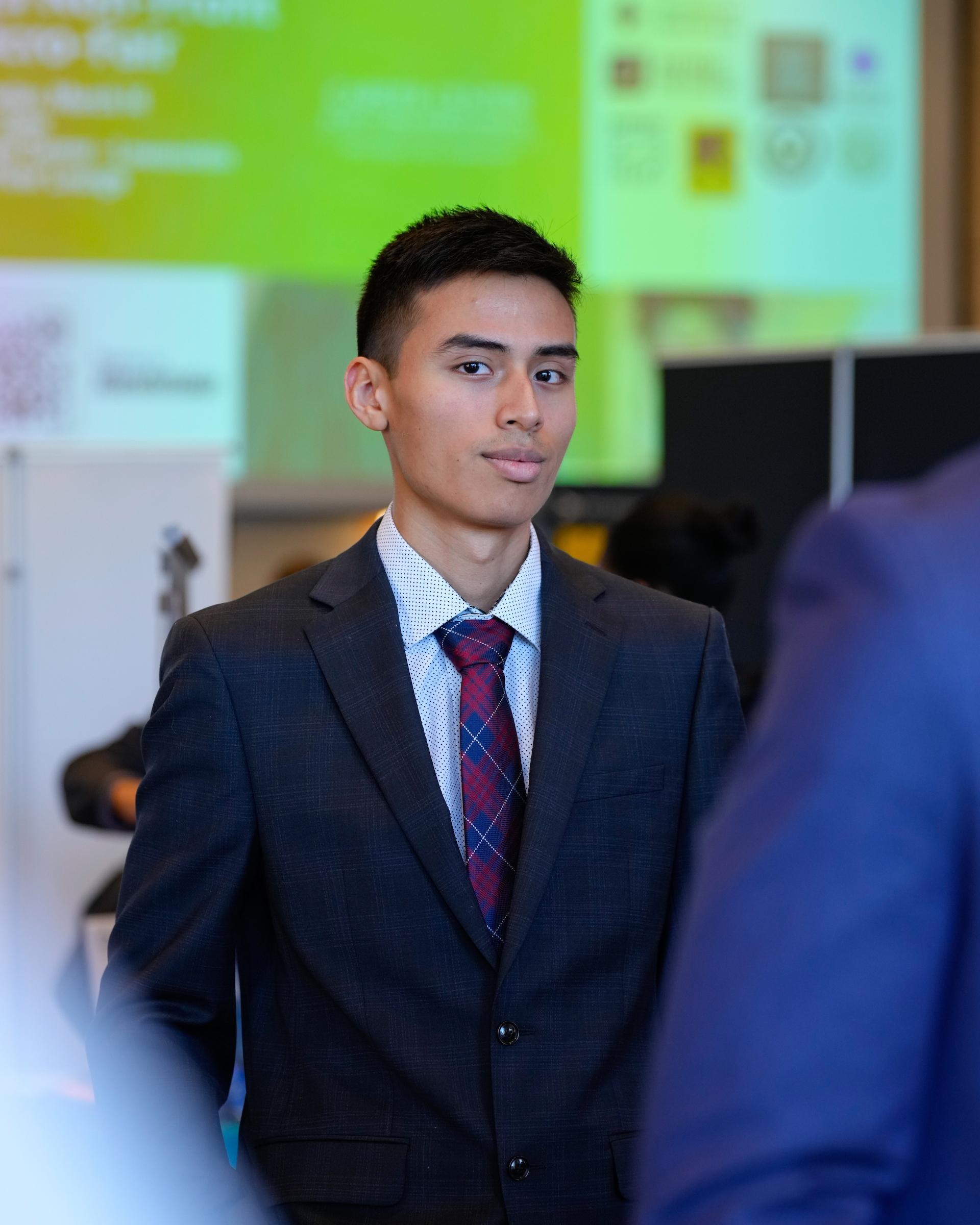A Jesuit Education
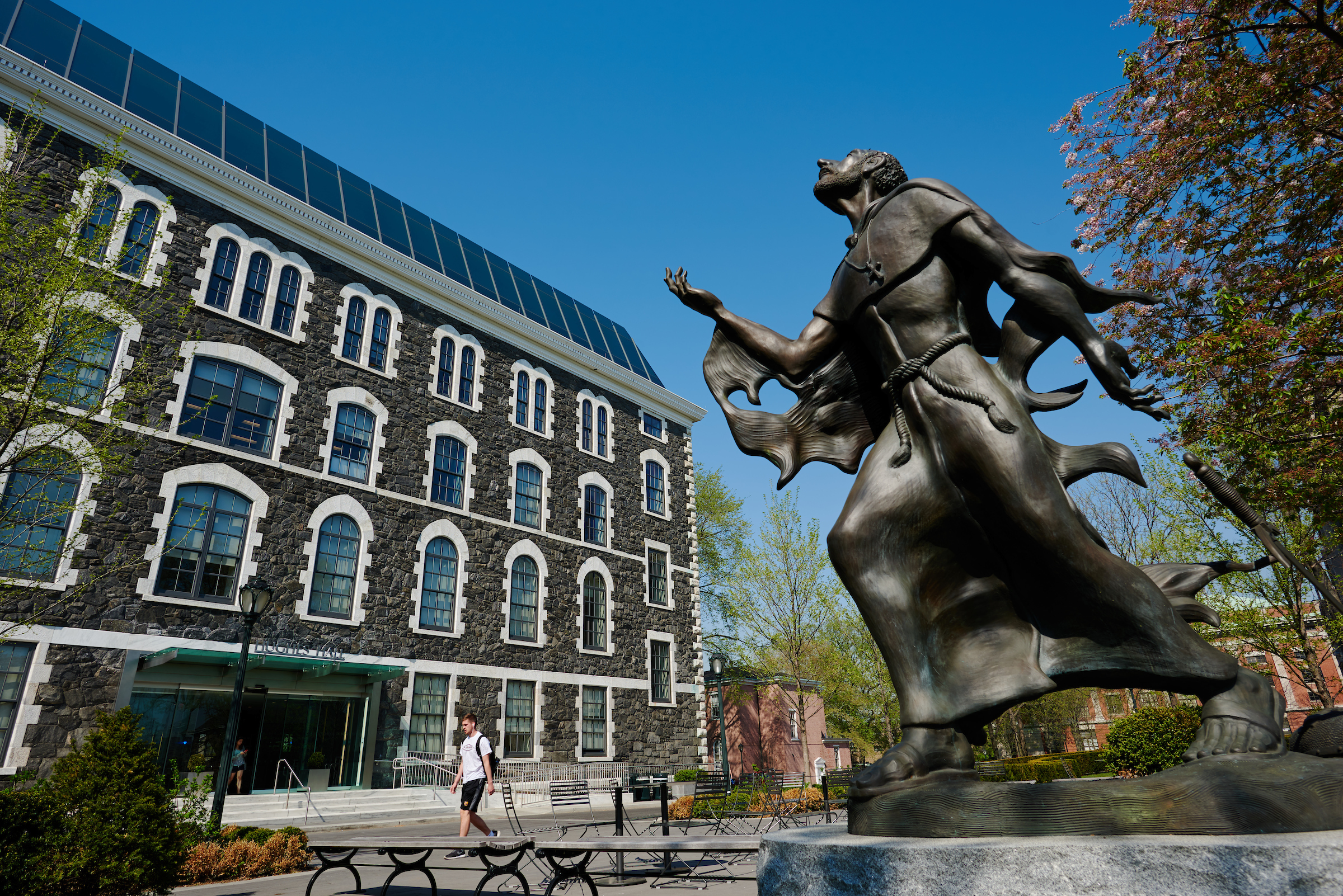 Fordham is a Jesuit university. That means our traditions, spirit, and academic heritage are rooted in the nearly 500-year history of the Jesuits, a Catholic order of priests renowned for their commitment to education and social justice. They built a global network of universities dedicated to educating leaders grounded in ethics and committed to making a positive difference in the lives of others.
Fordham is a Jesuit university. That means our traditions, spirit, and academic heritage are rooted in the nearly 500-year history of the Jesuits, a Catholic order of priests renowned for their commitment to education and social justice. They built a global network of universities dedicated to educating leaders grounded in ethics and committed to making a positive difference in the lives of others.
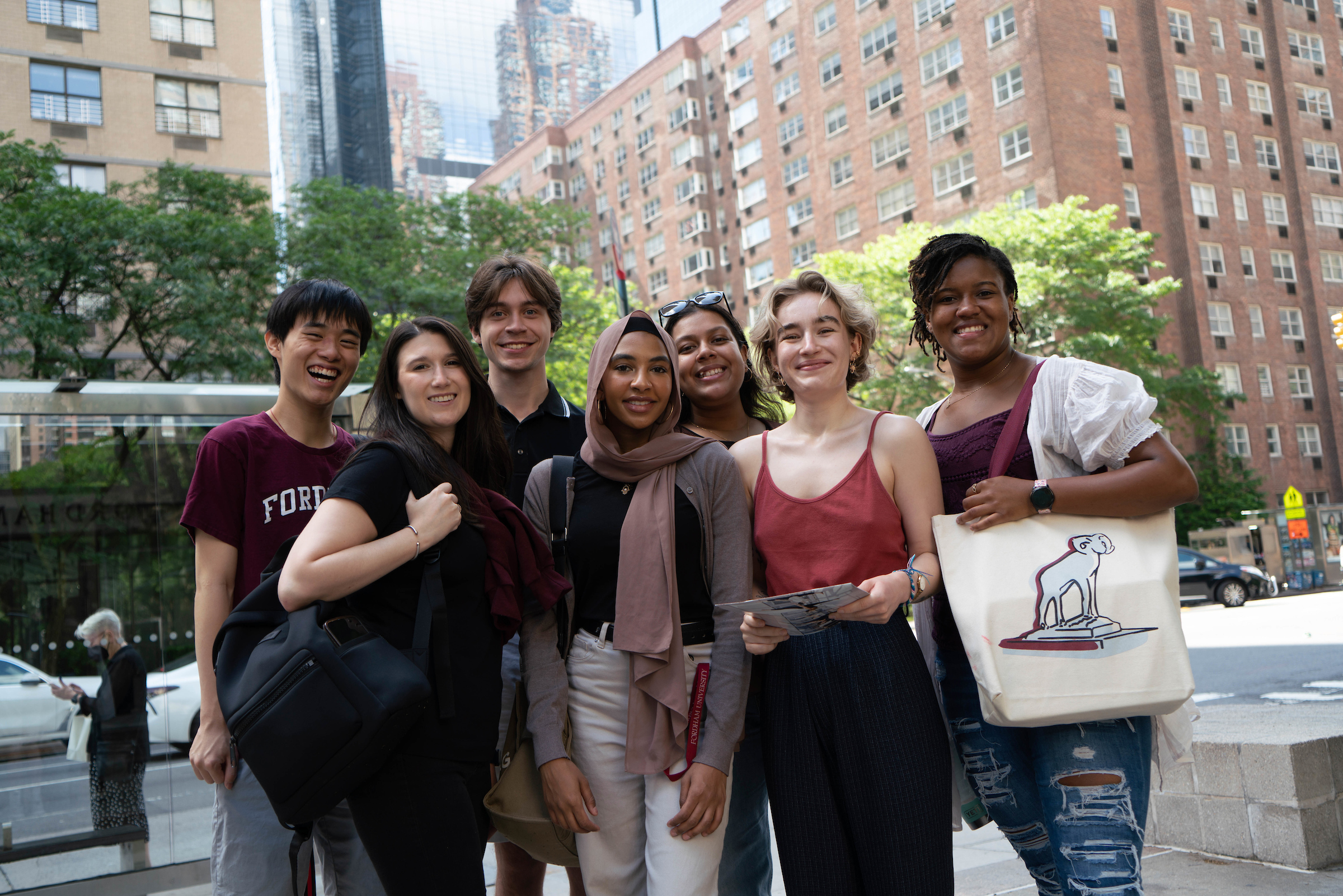
Love should show itself more in actions than in words.
- St. Ignatius of Loyola, Founder of the Society of Jesus (the Jesuits)What does Jesuit education mean at Fordham? Here are three ways Fordham helps students become compassionate, ethical, and committed people dedicated to helping others.
Knowledge and Intellect
Our rigorous liberal arts curriculum—both in our undergraduate business and liberal arts colleges—teaches students how to think, not what to think.
Beginning in their first year, faculty ask students to question assumptions and wrestle with ethical gray areas in courses such as Faith & Critical Reason and Philosophy of Human Nature. These courses are intended to develop students’ critical thinking and public speaking skills by getting them to engage, analyze, and synthesize course material.
Throughout their four years, students are encouraged to engage in research with faculty, study abroad, and pursue internships. These experiences give students a true interdisciplinary education, teaching them important skills and lessons that can't be taught inside the classroom.
- 70+ majors and minors
-
100+ study abroad programs, in 50+ countries, on 6 continents
-
Nearly 90% of Fordham students have at least one internship before graduation
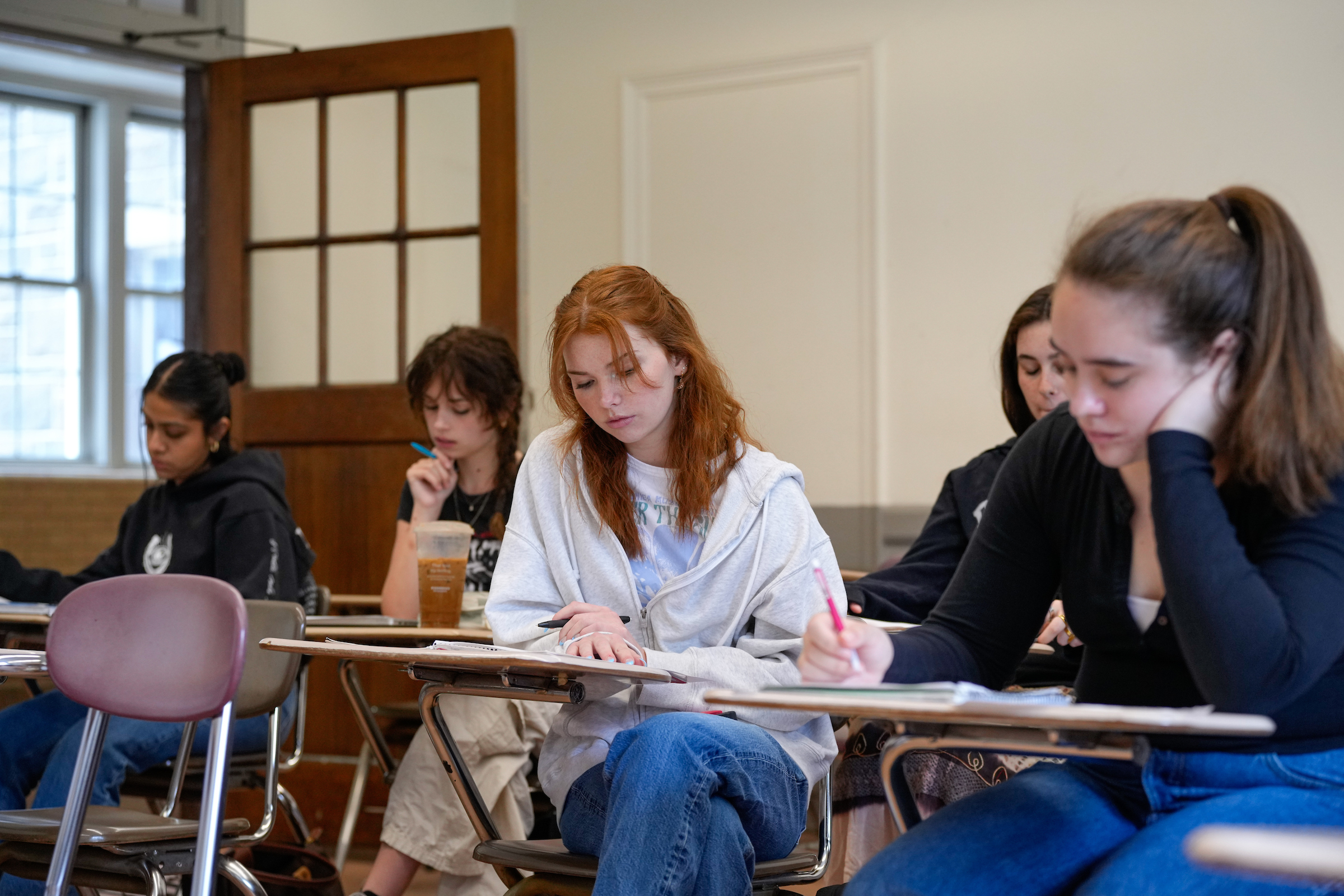
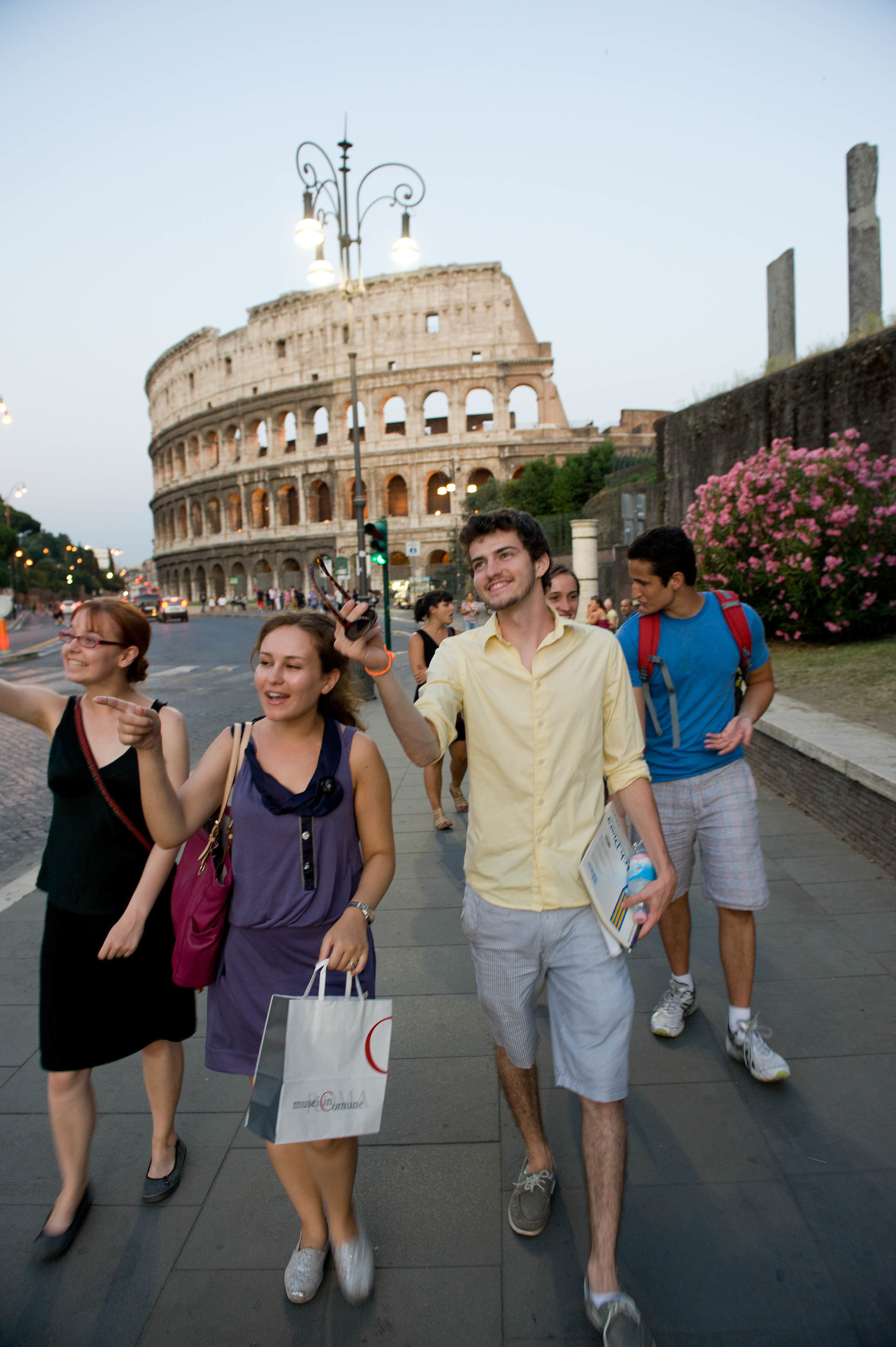
Empathy and Ethics
Since the 16th century, Jesuit educators have sought to empower empathetic leaders dedicated to building a better world. At Fordham, students learn with educators from a variety of faith traditions and backgrounds, which helps them see and understand issues from multiple perspectives.
Our small and interactive classes help them gain the confidence to question assumptions, seek answers to the complex problems of our world, and develop the skills to become global citizens.
A Fordham education teaches our students to balance real-life issues with ethical questions and moral responsibilities that leaders across industries face each day.
-
Average class size 23
-
Student-to-faculty ratio 14:1
-
Students from 50 U.S. states and 100+ countries
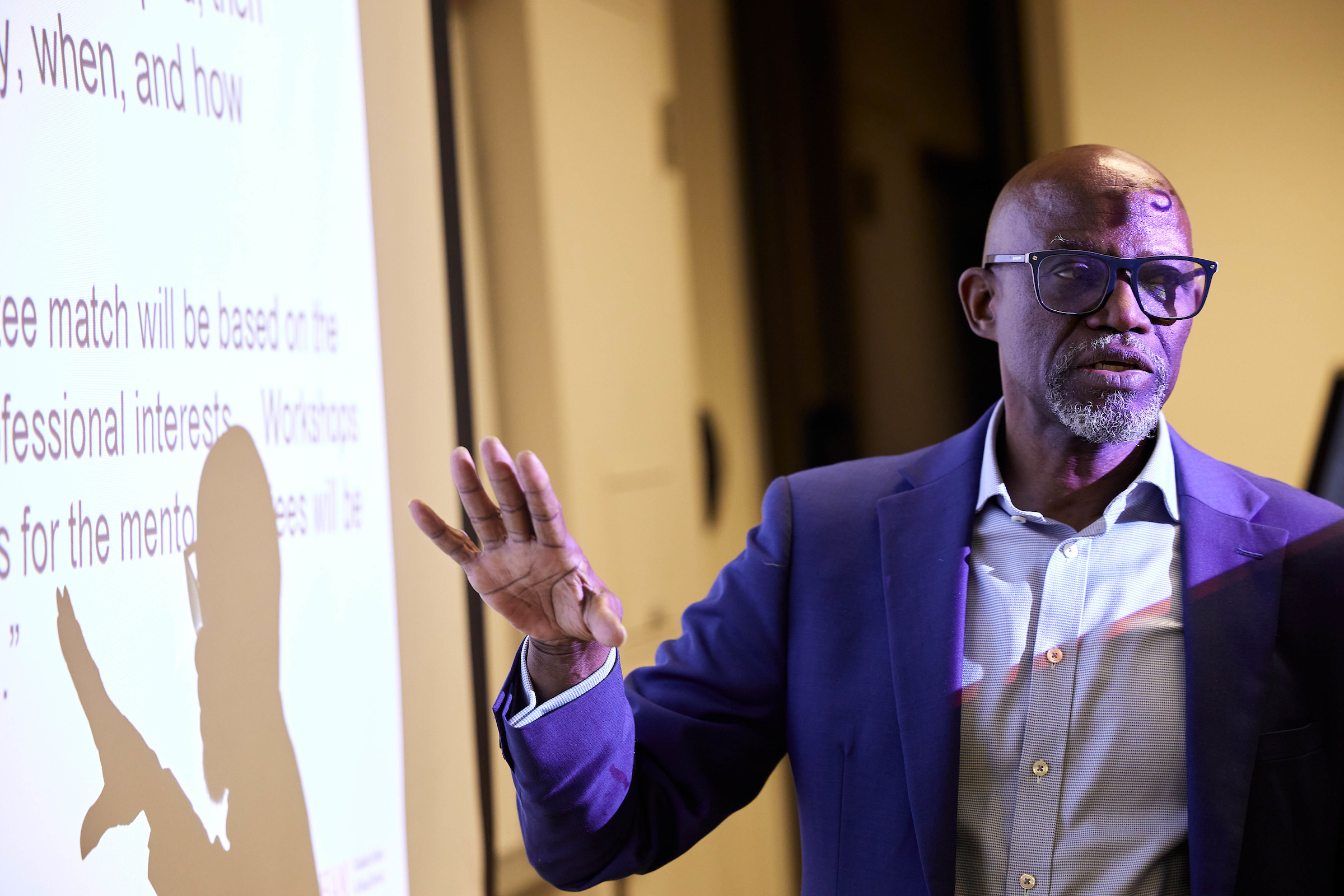


Action and Social Justice
At Fordham, simply knowing and caring is not enough. Fordham encourages students to go out in the world and apply their knowledge to help others.
Through Serving the City internships, community engaged learning courses, and programs like Urban Plunge and Global Outreach, students apply what they learn in class to the real world.
This is more than community service—it’s an opportunity to learn with and from our fellow New Yorkers and experts in various fields working to solve problems facing our communities.
- 2200+ students involved in community engaged learning courses
-
150+ students placed in Serving the City internships
- 300+ students involved in Urban Plunge and Global Outreach
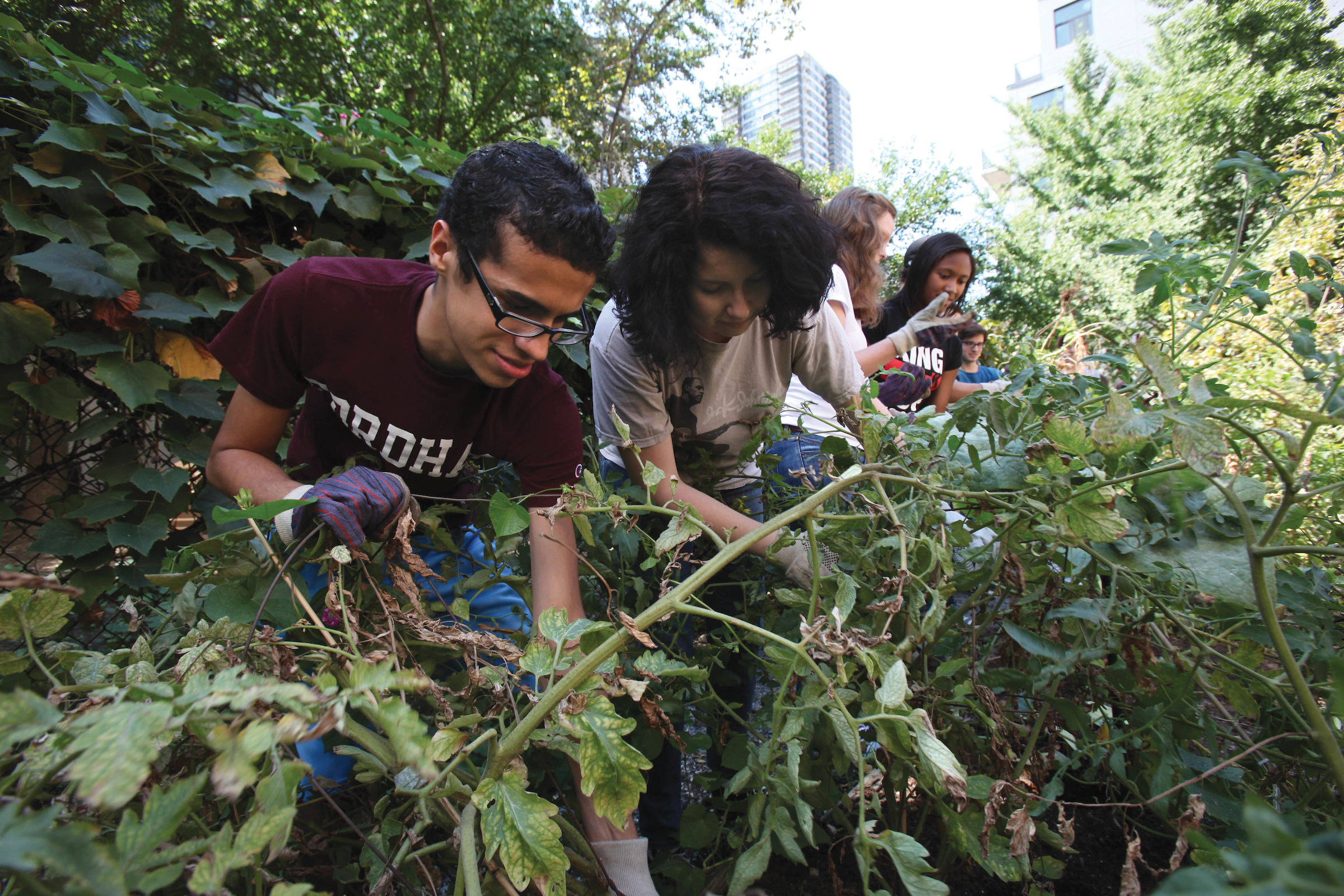
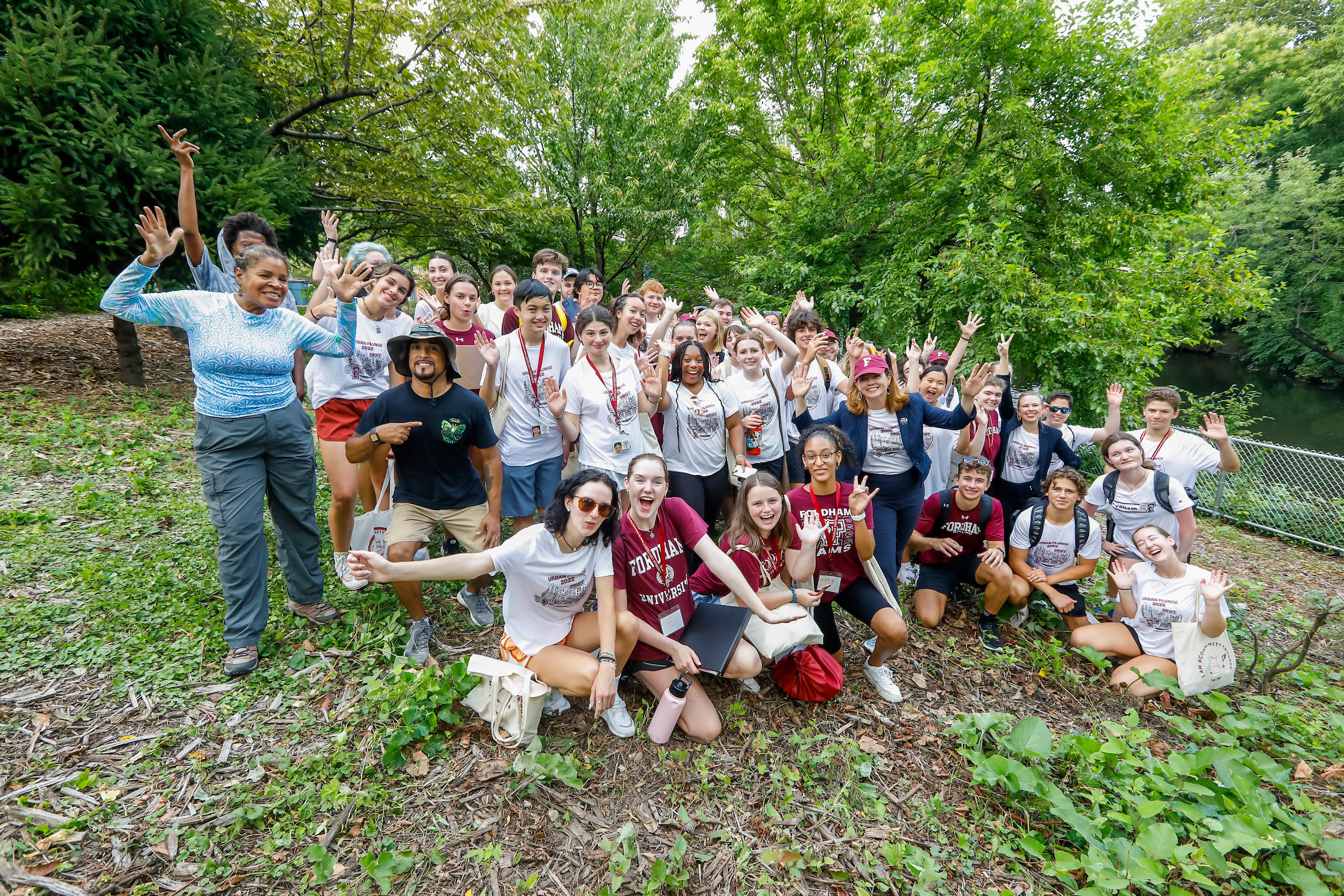
What does Jesuit education look like in practice? Check out some projects done by students through the Center for Community Engaged Learning.
When you put all of these pieces together—knowledge and intellect, empathy and ethics, and social action—you can see why employers seek out Fordham grads. They’re hardworking, engaged team players who know how to advocate for positive change.
